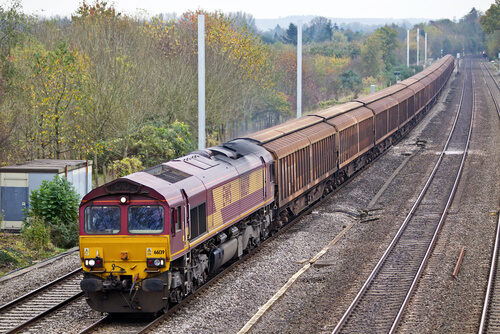The Estonian state-owned rail cargo operator EVR Cargo is in negotiations with the operator of the port of Trieste along the Adriatic Sea in Italy and the company is to also develop a North-South route to Odessa along the Black Sea, informs LETA/BNS. “Last week meetings were held with one of the large operators of the port of Trieste and a follow-up meeting is likely to take place in Estonia within the next few months. During this time we must develop and discuss all the possibilities, the amount of goods that could be brought and under what conditions – if and what kind of investments must be made, this is the current status of the project,” EVR Cargo CEO Raul Toomsalu told BNS.
“It is possible that things will be coordinated even sooner, but these things take time, especially with Italians,” Toomsalu said. EVR Cargo is also developing a connection with the port of Odessa along the Black Sea and there has previously been talk of Georgia and Azerbaijan, which will be on the North-South route of the international transport corridor connecting the Baltic sea and the Persian Gulf. Toomsalu told BNS in November 2016 that preparations for the relevant agreement are underway but said that details will not be mentioned in a situation of strong competition.
“[EVR Cargo] is joining the project North-South. This will enable cargo carriage from Northern Europe and Scandinavia via the port of Paldiski through Russia to Azerbaijan and further to Iran and other Persian Gulf countries,” Igbal Huseynov, deputy head of Azerbaijani Railways, told Interfax last year. “Russia and Iran support Estonia’s participation in this project,” Huseynov said.
The North-South transport corridor is meant for the carriage of goods from India and the Persian Gulf countries to Russia, Western Europe, and the Baltic and Nordic countries. The main advantage of the transport corridor compared to other routes is the two-fold and three-fold shortening of the length of cargo carriage routes and the time of delivery. While the transport of goods by ship from the Persian Gulf through the Suez Canal and the Mediterranean Sea to Helsinki lasts 40 to 60 days, then doing so through the North-South corridor would take 20 to 25 days.
In order to develop cargo carriage in that direction, Azerbaijan, Iran and Russia in 2005 signed a contract for the construction of a 375 kilometer railway section on the Iranian territory and in Azerbaijan until its border with Iran. The total cost of the project is 200 million euros. EVR Cargo is an Estonian state-owned rail cargo operator that operates in the carriage of goods, repair of railway engines and freight cars, and renting out freight cars. With the new freight cars, EVR Cargo’s rolling stock will consist of 66 engines and 2,522 cars. The average number of employees of EVR Cargo in 2016 was 684.




